News
2014 Officer and Councilor-at-Large Ballot: Biographies and Photos
The ASTS Nominating Committee is pleased to put forward the following ballot for 2014 Officer and Councilor-at-Large positions. Below are the candidates, along with their personal photos, biographies, and summaries of their ASTS involvement. Voting will open in April 2014 and eligible members will receive an email with a link to the ballot. Members will be asked to vote for one candidate for President-Elect, one candidate for Secretary and three candidates for Councilor-at-Large.
Election results will be announced at the 2014 Annual Business Meeting.
Candidate for President-Elect: Charles M. Miller, MD
Candidates for Secretary:Sandy Feng, MD, PhD
Dixon B. Kaufman, MD, PhD
John C. Magee, MD
Candidates for Councilor-at-Large:
| David A. Axelrod, MD, MBA Ginny L. Bumgardner, MD, PhD, FACS Kenneth D. Chavin, MD, PhD, FACS | A. Osama Gaber, MD, FACS Michael B. Ishitani, MD Alan I. Reed, MD, MBA |
President-Elect (Vote for 1)
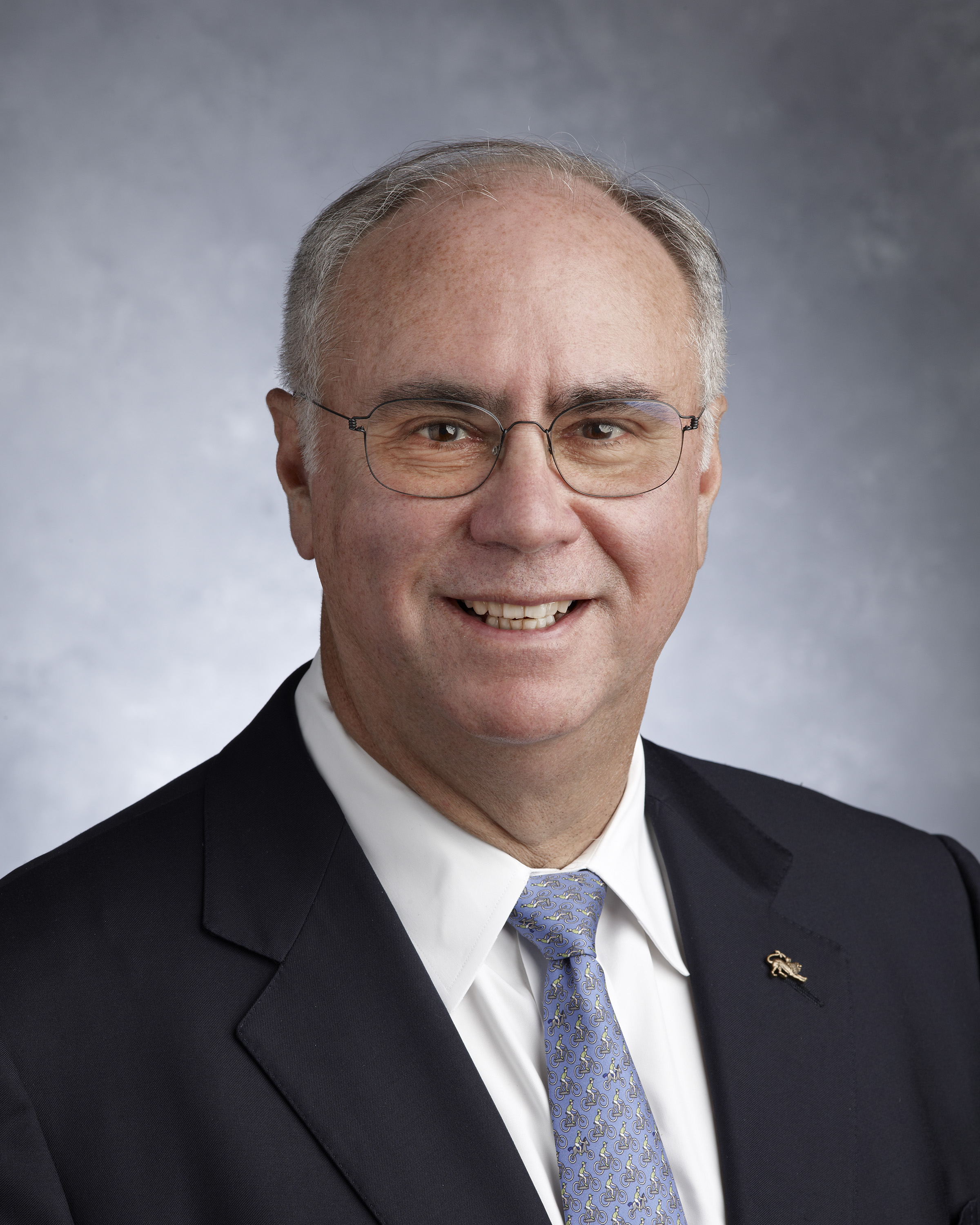 | Charles M. Miller, MD
|
| I am honored and humbled to be the nominee for President-Elect of the American Society of Transplant Surgeons (ASTS). Perhaps most importantly, I am deeply inspired by the opportunity to help lead ASTS and to give back to the transplant community. My involvement with ASTS has been very rewarding and fulfilling, and over the years, ASTS has been a great support to me professionally and personally. I am eager to contribute to the organization’s future as President-Elect and to help ensure that current and future members benefit from the Society’s collegial and supportive environment and resources. Many of my previous leadership roles within ASTS, my academic and surgical background, experiences and accomplishments, and my participation in other professional organizations have prepared me for this role. In addition to academic appointments at the Mt. Sinai School of Medicine and the Cleveland Clinic Lerner College of Medicine, I have initiated and restructured 2 large and complex transplant programs in both New York and Cleveland. These experiences have been invaluable and provide important perspective and knowledge of the breadth of issues facing transplant professionals. They also teach the real value of empowerment, a value I want to promulgate as a leader of the Society. I have been actively involved in ASTS leadership for almost 20 years. I was Chair and Co-chair of the ASTS Ethics Committee and Chair of the Education Committee. I served as Councilor-at-Large and serve currently as Secretary where I have learned close-up the scope and complexities of the issues we face and the rapidity of change in our environment. The combination of these roles and experiences provide the foundation necessary for the contributions I hope to make as President-Elect. The Society’s current leadership has devised a strategic plan that skillfully advances the ASTS mission. Each piece of this plan merits our attention and hard work. Of particular interest to me is our commitment to provide the resources necessary to help our membership access and share an array of information, including best practices. Importantly, ASTS members also need a platform to confidentially share information critical to continuous improvement in transplantation. To this end, I am interested in the ongoing discussion about a Patient Safety Organization where clinical and administrative problems faced by our members and their transplant centers can be discussed, shared, and learned from in a confidential and protected environment. Mentorship and training was important to me as a trainee and is important to me now. I benefited from others investing time to mentor me, and in turn, I approach that role for myself with a significant of sense of responsibility. The Society’s ability to help all transplant professionals, and to enhance their careers, is a key reason why this position is so important to me. And I want to hear from you, the Society’s membership; I want to hear about your needs and your ideas for the future. I will look to you for constant input and feedback as we continue to grow in a world where the rate of change has no bounds. With the Society’s past achievements setting a solid foundation for the future, with the guidance of our new strategic plan, and with a strong focus on membership needs, ASTS will continue its pivotal role as the premier professional organization for transplantation. | |
Secretary (Vote for 1)
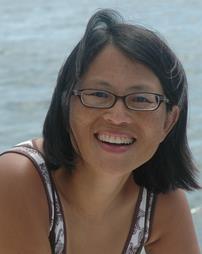 | Sandy Feng, MD, PhD Professor of Surgery University of California San Francisco
|
| I vividly remember my first ASTS service. Then President Busuttil had appointed me to the newly formed Vanguard Committee which was holding its inaugural meeting at the Chicago Hilton approximately 10 days after I delivered my daughter. Although the day-long trip would pose some challenges for Rebecca and I (no need to elaborate), I was determined to go and participate. What an exciting concept?! A Committee formed to cultivate relationships with young transplant surgeons such as myself—to serve us and to provide opportunities for us to serve the ASTS. This was my entrée to the ASTS which has, over the past 15 years, become my professional home. Within its supportive climate, it has been easy and fun to grow up from a wide-eyed, excitable and energetic toddler into an experienced, excited and (hopefully) still energetic professional. I have been privileged to propose and implement multiple initiatives to welcome, integrate, and serve (young) transplant surgeons. These efforts include establishing the Vanguard Prize, proposing the Presidential Mentored Student Grant, initiating the Career Development Symposium at the ASTS Winter Symposium, initiating the annual New Members’ Cocktail Reception during the ATC, establishing the match for Abdominal Transplant Fellowships, and redesigning the ASTS Website in 2006 with electronic membership application, award submissions and review, and a web-based Fellowship Log. I have helped shape the primary ASTS educational offerings by organizing the 2nd, 3rd, and 4th ASTS Winter Symposia, serving on the Executive Planning Committee for the 2008, 2009, and 2010 ATCs, and serving as an Associate Editor and now as a Deputy Editor for AJT. As my professional perspective has evolved, so has my focus within the ASTS. Currently, my primary initiative is to harness ASTS’s power of advocacy to delineate an algorithm for clinical trials testing interventions in brain dead donors. I am certain that we all consider the insufficient quantity and suboptimal quality of deceased donor organs to be our biggest challenge, hands down. However, there is striking lack of innovation in research to mitigate ischemia/reperfusion injury in deceased donors, likely attributable to daunting scientific, logistical, ethical, and regulatory obstacles (1, 2). ASTS—with a strong presence and track record of advocacy&mdash can lead the discussion to address and resolve these fundamental and vital issues. This initiative speaks to my vision as to how ASTS can best advance its “research mission”. Rather than solely awarding individual fellowships, the ASTS can, through advocacy, broadly advance a wide spectrum of transplantation research efforts that span basic, translational, clinical, social, and education sciences. The ASTS should dialogue vigorously with NIH, other federal agencies, pharmaceutical companies and private funding sources to set and prioritize the transplantation research agenda. Moreover, to facilitate future advances to improve transplant outcomes, the ASTS can advocate for surrogate endpoints and novel trial designs to overcome the nearly insurmountable standards that impede registration of new therapies. As ASTS Secretary, it would be my distinct privilege to continue to serve and advance the ASTS vision, “saving and improving lives through transplantation."
| |
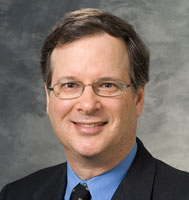 | Professor and Chief
|
| It is an honor to be nominated for the position of Secretary of the ASTS. The ASTS has been an important part of my academic career since attending my first annual meeting at the Drake Hotel in Chicago when a surgical resident in the mid-1980s. My formal involvement with ASTS service started in 1993 and has been continuous since, having served in many capacities including: Chair of the Education Committee, the Executive Program Committee Chair for the American Transplant Congress, and recently as a Councilor-at-large. In addition, I have held leadership positions in other facets of the transplant field that complement the ASTS. I have been active with UNOS, having served on the Kidney and MPSC Committees, as Chair of the Pancreas/Islet Transplant Committee, and currently as a Regional Councilor and a member of the UNOS Board of Directors. I have also been Councilor of IPITA, and currently serve on the editorial boards of the major transplant journals. What’s my day job? Well, I am a transplant surgeon and since 2011 have held the position as the Ray D. Owen Professor and Chair of the Division of Transplantation at the University of Wisconsin - Madison. I also serve as Medical Director of the Transplant Service Line at UW Hospitals and Clinic, and as the Surgical Director of the kidney transplant program. My clinical focus is on kidney, pancreas and islet transplantation. My clinical research focuses on immunosuppression minimization in kidney and pancreas transplant recipients. My basic research effort focuses on development of new tolerance induction strategies in large animals, currently supported by the NIH Non-human Primate Tolerance Study Group Consortium. These experiences above, especially my committee service to the ASTS, and in particular, my tenure as ASTS Councilor, has been excellent preparation for serving as Secretary. I understand the critical importance of the surgical perspective to advocate for issues pertinent to us impacting fellowship training, research, regulatory issues, organ allocation, legislative agendas, and beyond. The next several years will offer exciting new opportunities for our field and our membership. I believe my experiences, leadership style, and perspectives will complement ASTS leadership so our Society will continue to be effective in advancing the practice and science of transplantation for the benefit of our members, our trainees, and our patients. I have enjoyed my connection to the ASTS since those earlier days at Chicago’s Drake Hotel, and would welcome the opportunity to continue to serve to make a difference. It would be a privilege to be your ASTS Secretary. | |
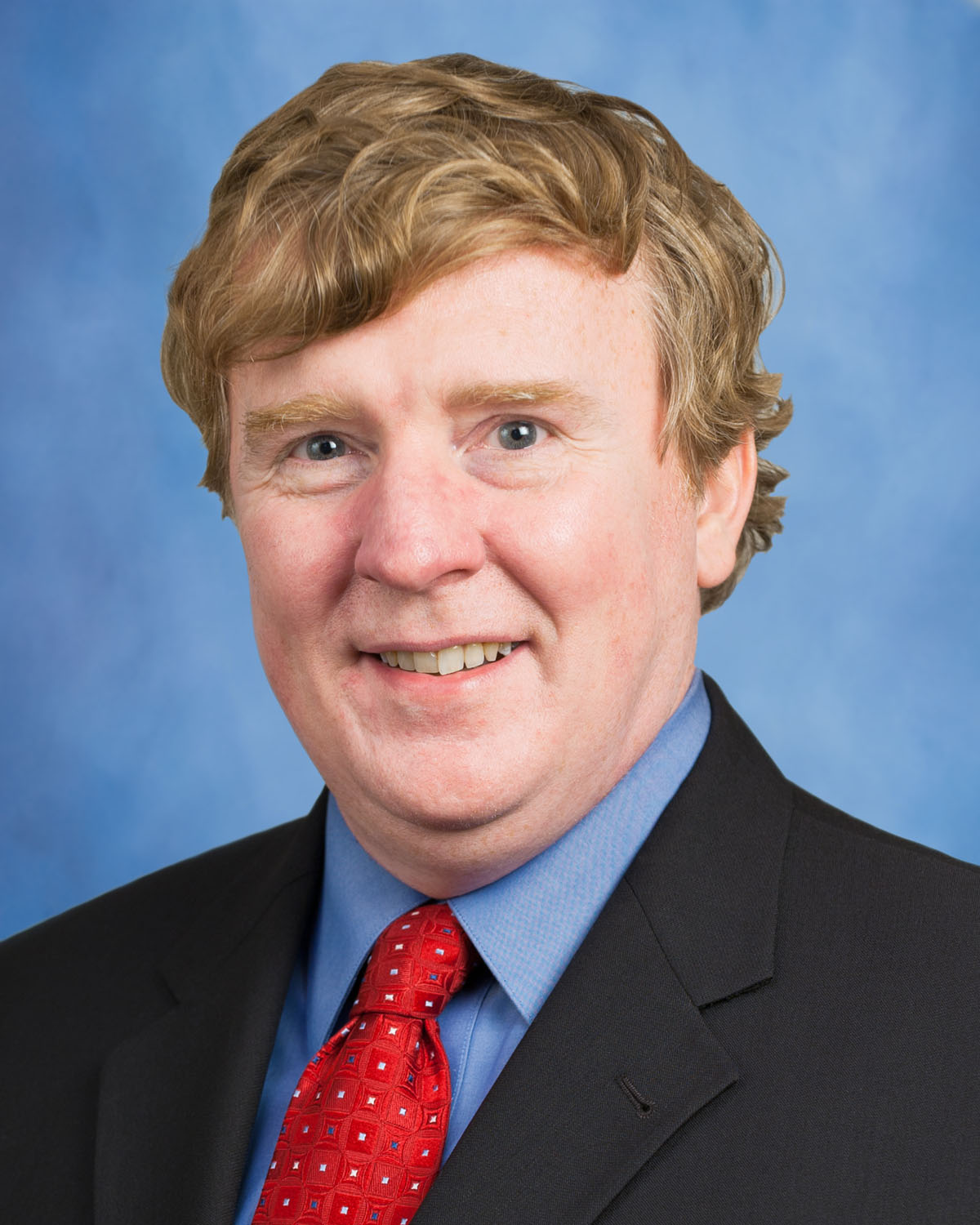 | John C. Magee, MD
|
| I am concluding my term as Councilor-at-Large and am seeking election as Secretary. I am committed to serving our membership by active contribution to our Society. During my term as Councilor, I built upon a continuous record of leadership. Prior to my current role, I believe my greatest contributions have been while co-Chair, and subsequently Chair, of the Fellowship Training committee where I have helped develop our current educational efforts and oversight for fellows and residents. I have been fortunate to serve on the Curriculum Committee, the Scientific Studies Committee, and the VCA committee. I have been on several task forces and currently serve as the ASTS representative to the Organ Donation and Transplantation Alliance. Both within the ASTS, as well with other organizations, I have been able to build consensus and lead across diverse groups. I believe my broad level of involvement provides me with an excellent overall understanding of our Society's mission and vision. My clinical practice includes liver, kidney, and pancreas transplantation in adults and children. In addition to my current leadership roles with in our transplant center, I am the director of our pediatric liver and kidney programs and was previously the director of our adult kidney program for several years. With respect to organ donation, I have had leadership roles within our OPO and am the ASTS representative to the Organ Donation and Transplantation Alliance. I believe this exposure provides me with insight into the challenges our members face in delivering clinical care and running transplant programs. In addition to maintaining a broad clinical practice, I am active in research to advance the field, with significant academic efforts in pediatric liver disease, transplant outcomes, organ donation and immunosuppression management. These efforts are funded by federal sources (NIH, HRSA, and CMS) as well as industry. I have been involved in development and refinement of transplantation policy, having served with the Scientific Registry of Transplant Recipients (SRTR) for 7 years and worked with many OPTN committees. I have also worked with CMS in efforts to balance oversight of transplantation. I believe this span of clinical practice, program leadership and academic effort provides me an awareness of the challenges facing transplant surgeons and insight regarding opportunities for improvement. As Secretary I believe I can provide perspective that will help advance our Society’s vision of fostering and advancing the practice and science of transplantation for the benefit of patients and society. The ASTS has been the primary focus and allegiance of my professional society effort. I have been very proud of how open our Society is with respect to providing opportunity for all to serve and make a difference. I have also been proud of how much impact countless individuals have been able to make on behalf of the ASTS. Our membership is strong, and active opportunity for robust engagement of both our junior and senior members is my priority. We are a great Society, and I wish to help advance our tradition of leadership as a Secretary. | |
Councilors-at-Large (Vote for 3)
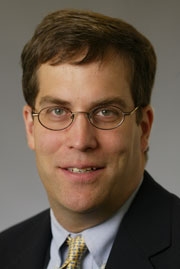 | David A. Axelrod, MD, MBA
|
| I am currently the Chief of the Transplant Surgery Section at Dartmouth-Hitchcock Medical Center, which I have led for 8 years. I completed an MD/MBA at Duke, surgery residency at University of Michigan, and transplant fellowship at Northwestern Memorial Hospital. My research focuses on the economic aspects of organ allocation and transplant care. My work has been published in JAMA, NEJM, and AJT. I also serve as an associate editor for AJT and Liver Transplantation. My major service to the transplant community has been through the American Society of Transplant Surgeons. As a member and then Co-Chair of the Vanguard committee, I created the Moore mentorship award to honor the commitment of senior faculty to the training of future transplant surgeons. I was also an active participant in the early development of the ASTS Academic Universe. As Chair of the Business Practice Committee (09-12), I worked with the committee to establish the Leadership Development Program (LDP) at Kellogg Business School. The LDP provides members and other transplant professional with the opportunity to learn from national business and transplant leaders. The program has been sold out and profitable for four years and has included, by design, surgeons, physicians, transplant administrators, and allied professionals. Last year we launched the year long Advanced Leadership Development Program which includes two in person sessions and bimonthly webinars of which I am the director. Finally, I was appointed as Co-Chair of the reimbursement committee and as a member of the bylaws committee. I have also represented the transplant community within UNOS, where I was a regional representative, vice chairman, and chairman of the Pancreas Committee, a member of the Policy Oversight Committee, and a volunteer to the ad hoc data management committee. I was active in the development of the newly approved national pancreas allocation system and have been recognized as a national leader in quality assessment in transplant care through my invitation to present at the joint SRTR/UNOS quality consensus conference. As an ASTS Councilor, I hope to represent assist the society in developing innovative programs to serve all of our membership through education and policy development. The next several years promise to be a period of significant change of all of us as a result of proposed revisions in the SRTR program specific reports, novel redistricting plans, and the implementation of the ACA. The ASTS needs to continue its strong and consistent role as an advocate for patient care and the nation’s transplant community. In addition, transplant professional are facing uncertain economic times resulting from reimbursement policy are debated in DC and the states. I will work hard to ensure that the voice of transplant surgeons and professionals from both large academic centers and smaller clinical programs is heard within the society and nationally as we consider these issues. I would be greatly honored to have the opportunity to continue to serve the society as a Counselor and appreciate the members’ consideration of my candidacy. | |
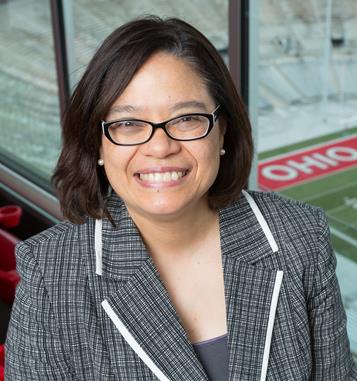 | Ginny L. Bumgardner, MD, PhD, FACS
|
| I first became involved with the field of transplantation during my General Surgery residency at the University of Minnesota through care of transplant patients, involvement in transplant clinical trials, and participation in exciting transplant-related immunology and clinical research projects. These early experiences became the foundation for pursuit of an academic career in transplantation merging patient care, research and training. | |
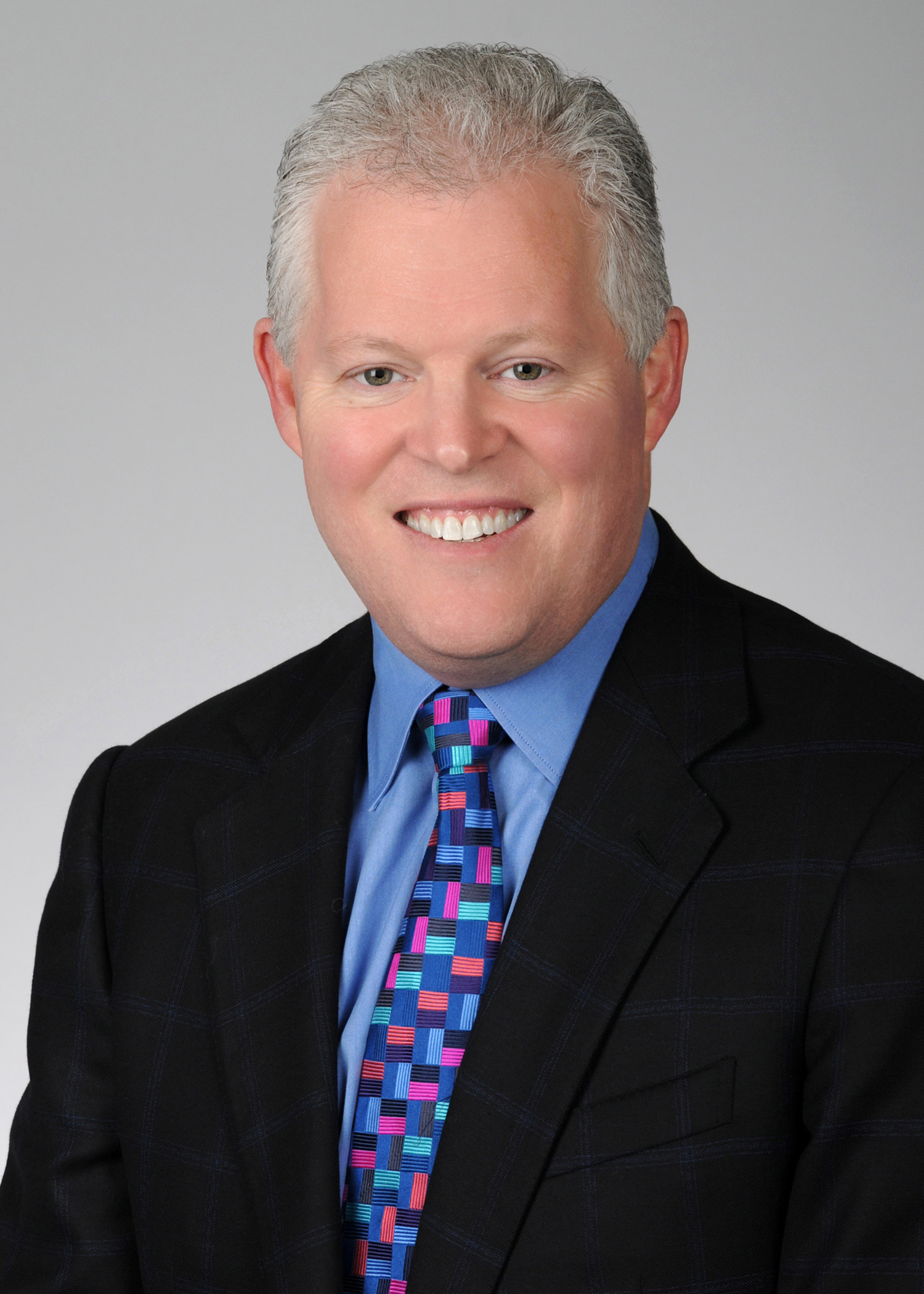 | Kenneth D. Chavin, MD, PhD, FACS
|
| I have been involved with the ASTS for more than two decades. My association began in 1990 when I started attending the scientific sessions and presenting the results of my research efforts. After completing my transplant fellowship I graduated to full membership and was honored to be the recipient of the ASTS Faculty Development Award. I am eternally grateful to the society for this support as it enabled me to pursue the work that ultimately led to an R0-1 award from the NIH. I am also honored to have been the recipient of the 2005 ASTS Roche Laboratories Presidential Travel Award and the Vanguard Prize. I have also served as an abstract reviewer for the annual meeting and as an invited speaker at the annual winter symposium including the inaugural event in 2001. Over the years, the ASTS has been the society on which I have focused my efforts and I have made a sincere effort to give back to the society by being actively involved in many different aspects of its mission. My initial committee involvement was on the newly established Scientific Studies committee. The primary accomplishment over this tenure was actually the establishment of a role for the committee that involved entertaining research ideas to review and disseminate to the society. Subsequently, I became a member of the Informatics committee and also served on the Curriculum Committee. I also participated in the development of the curriculum for the Liver section of the Academic Universe. I have participated in the society’s lobbying efforts, as part of ASTS-Legislative Day, to support the Organ Donation and Recovery Improvement Act. My most recent, and largest contribution to the society, has been my service on the communications committee initially as co-chair and, over the past three years, as chair. In that role, I have gained a unique perspective on our membership by conducting surveys and thoroughly exploring the needs of our membership. Based on these efforts we are undertaking a redesign of our IT and the ASTS website to make it more user-friendly and relevant to the entire spectrum of our membership (from fellows to our most senior members). As the editor of the Chimera, I oversaw the addition of two new sections: ASTS across the Field and People in Places. As a committee chair, I have had the opportunity to attend council meetings twice year and, therefore, have a working knowledge of all the issues and initiatives that are facing our society. I believe that these various roles and my ongoing participation in the society’s activities over the past 20 years have prepared me to serve as Councilor-at-Large. The ASTS has been an integral part of my professional career. I genuinely have the passion, energy, and commitment necessary to be a strong voice for our society at this critical time. | |
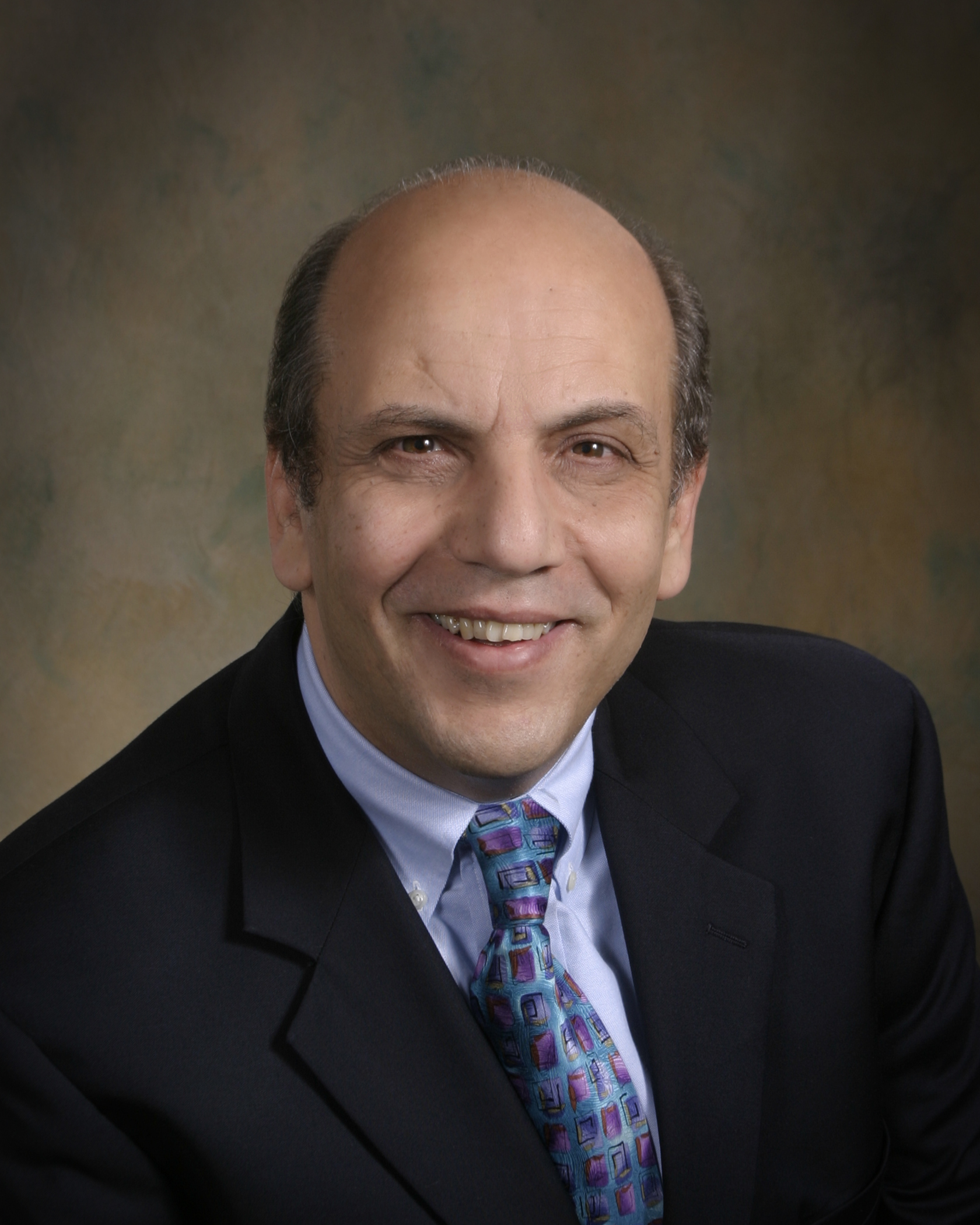 | A. Osama Gaber, MD, FACS
|
| I am proud of having been a member of the ASTS for over 25 years. Currently, I am the Director of the Houston Methodist J.C. Walter Jr. Transplant Center, a Professor of Surgery at the Weill Cornell Medical College and Vice Chairman of Surgery at the Houston Methodist Hospital in Houston, Texas. In 2011, I was named for the J.C. Walter Jr. Endowed Chair in transplantation. I earned my medical degree in Cairo, Egypt. After a year of internship at the Washington Hospital Center, I completed my surgical training at Boston University. I did my transplant training at the University of Chicago and received my first academic appointment in 1987 at the University of Tennessee in Memphis where I became director of transplantation, a tenured professor and was named to the Baptist Memorial Health Care Foundation Chair of Excellence in Transplantation. While at the University of Tennessee, I also held professorships in the colleges of Pharmacy and Nursing. I joined the Houston Methodist Hospital in Houston, Texas in 2006. Much of my clinical career has been devoted to pancreas, liver, and kidney transplantation and to the surgical care of advanced organ failure patients. I have had a keen interest in transplantation for diabetes and in Islet Research for which I have received funding from various institutions and foundations, including the National Institute of Health, JDRF, Assisi Foundation and the Vivian Smith Foundation. I also have had a long history of clinical research and of surgical and transplant education. I have been active in supporting transplant community issues since my early days as Chair of the SEOPF Kidney-Pancreas Committee. I also served as Region 11 representative and member of the MPSC and the UNOS Board. I am a member of numerous other professional societies and organizations, both in the United States and abroad but my major involvement has always been through the ASTS and its committees. Since coming to Texas, I spent five years as Chair of the State’s Task force on chronic kidney disease and served on the ESRD network. I am committed to the ASTS goals and mission, and will work hard on bringing the Society even closer to the clinicians, educators and researchers in transplantation. | |
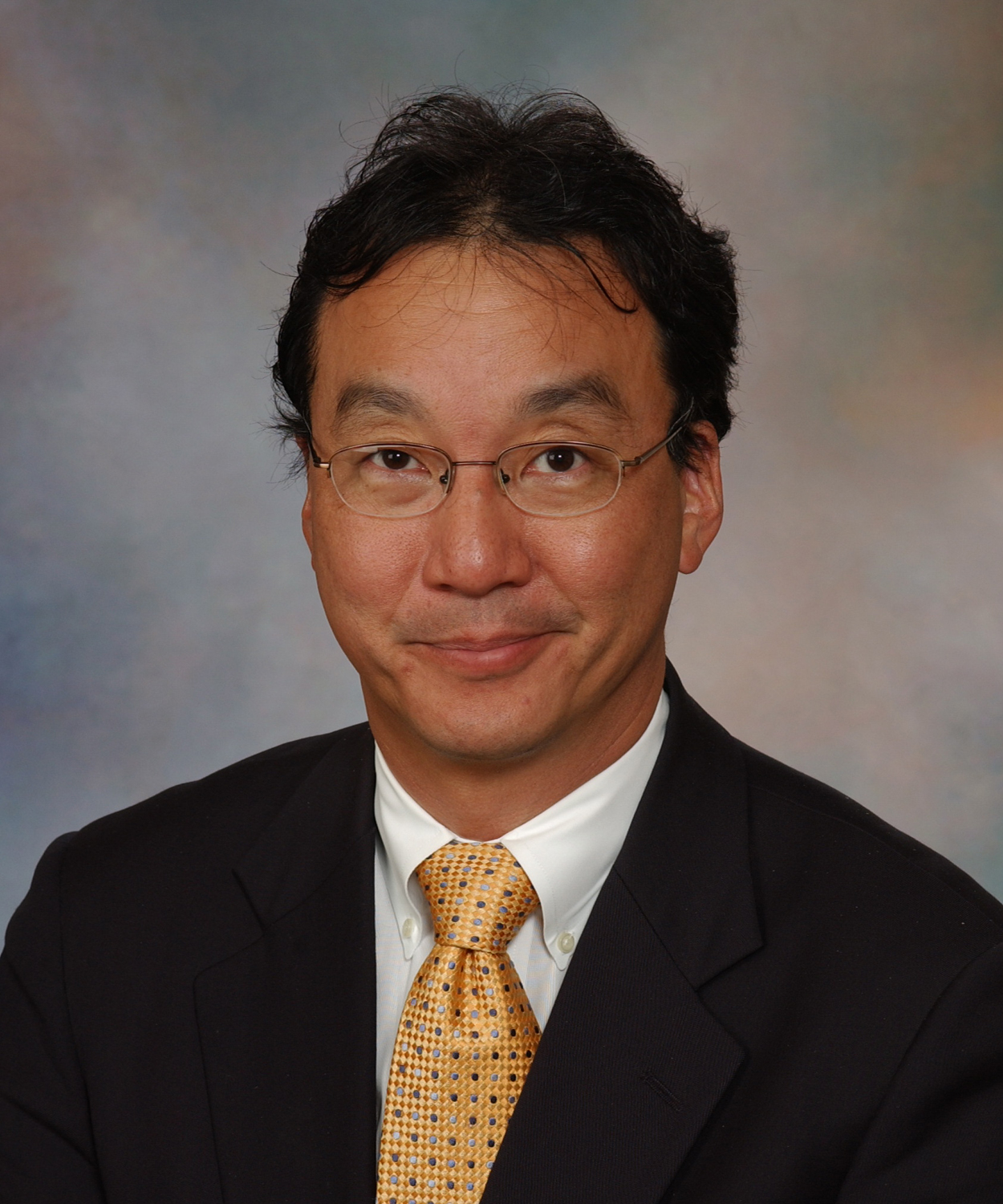 | Michael B. Ishitani, MD
|
| I am grateful for this opportunity to run for the position of an ASTS councilor-at-large. Over the last 2 decades I have pursued a career in transplantation, pediatric transplantation and pediatric surgery with a strong focus on fellowship training and continuing medical education. My career has taken me from the University of Virginia to Cleveland Clinic, Case Western University Hospital and finally the Mayo Clinic.
After rotating off the CME Committee, I have remained involved as a Co-editor and Member of the ASTS 40 group which is tasked with producing the “40th Year Anniversary of the ASTS” book with Tom Peters. | |
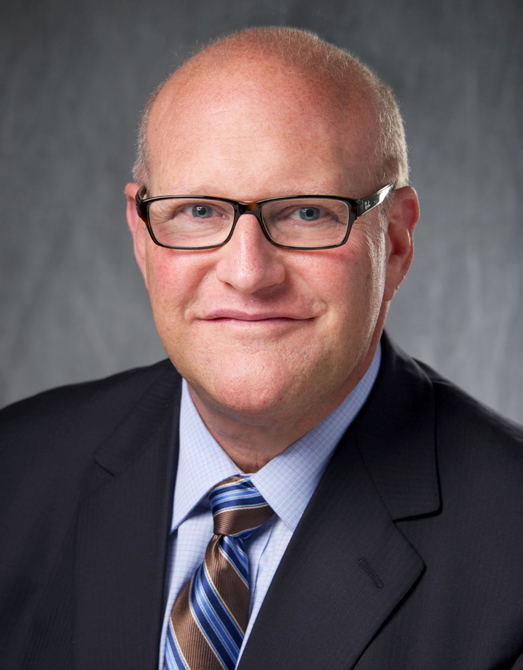 | Alan I. Reed, MD, MBA
|
I am honored to be selected to be on the ballot as an ASTS Councilor-at-Large and would be proud to continue to serve the Society in a leadership role in the future. I have been a member since 1991 and served on a variety of committees over the years including the Program, Awards, Publications, Newsletter and Bylaws (co-chair) committees. Most recently, I was the co-chair, and then chair of the Ethics committee helping the Society deal with a number of interesting and thorny dilemmas during my 6 years in those roles. I have lobbied for the Societies priorities on Capitol Hill. I have enjoyed engaging my colleagues, both young and old, as an active contributor to the successful Leadership Development Program the Society sponsors with the Kellogg School of Business to train our future leaders. In addition I have a long history of serving UNOS in a variety of roles, including experience in leadership roles, most recently serving as vice-chair of the Membership and Professional Standards Committee. I believe familiarity with their personnel and the operations of the OPTN and HRSA can provide useful counsel to the leaders of our Society. I have a strong track record of working closely and collaboratively with my colleagues in Medicine at my own institution and within other agencies. My business education has given me a new set of lenses to analyze old (and new) issues: I believe the strategic plan that has recently been cast has set the Society on a firm course for the future. I would be excited to be part of the team to help bring that plan to life. | |